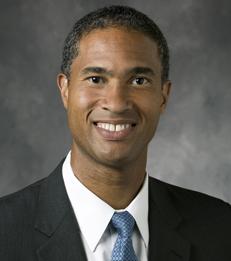Opinion
Turnaround
—


There are many ways to grow, but all successful strategies require discipline, courageous leadership, and a dose of humility.
By Peter Blair Henry
Thirty years ago, today’s emerging markets were so-called Third World nations suffering from crippling debt, hyperinflation, slow (or no) growth, and an aura of hopelessness when it came to economic efficiency. Using decades of hard-won reforms generally pushed on them by advanced nations, many of these countries achieved a dramatic turnaround in their growth narratives to become drivers of the global economy in the 21st century.
Meanwhile, First World nations have strayed off course. Despite recent headlines proclaiming the fall of BRIC nations and recovery in the West, ever since the financial crisis of 2008–2009, advanced nations have settled for underperformance in place of true prosperity. How else would 1.7 percent growth in the United States, 0.9 percent growth in Britain, and a 0.6 percent contraction in the Euro Area—as presented in the IMF’s July 2013 update to the World Economic Outlook—qualify as resurgence? To make matters worse, political grandstanding too frequently substitutes for good conscience, leading to gridlock and shutdowns in capitals from Washington to Rome.
How will advanced economies get back on track? The stories of Turnaround teach us that we need reforms in both advanced and emerging economies. The IMF estimates that for every 2 percentage-points of economic slowdown in the BRICs, growth in the United States will slow by 0.5 percent. Economic growth is not a zero-sum game: the slowdown in emerging markets is bad news for advanced economies that need export expansion for higher growth. For their part, how will developing nations proceed in their own quest for further progress?
Read full article as published in The World Financial Review
___
Peter Henry is Dean of the Leonard N. Stern School of Business, the Dean Richard R. West Professor of Business, and the William R. Berkley Professor of Economics and Finance.
Meanwhile, First World nations have strayed off course. Despite recent headlines proclaiming the fall of BRIC nations and recovery in the West, ever since the financial crisis of 2008–2009, advanced nations have settled for underperformance in place of true prosperity. How else would 1.7 percent growth in the United States, 0.9 percent growth in Britain, and a 0.6 percent contraction in the Euro Area—as presented in the IMF’s July 2013 update to the World Economic Outlook—qualify as resurgence? To make matters worse, political grandstanding too frequently substitutes for good conscience, leading to gridlock and shutdowns in capitals from Washington to Rome.
How will advanced economies get back on track? The stories of Turnaround teach us that we need reforms in both advanced and emerging economies. The IMF estimates that for every 2 percentage-points of economic slowdown in the BRICs, growth in the United States will slow by 0.5 percent. Economic growth is not a zero-sum game: the slowdown in emerging markets is bad news for advanced economies that need export expansion for higher growth. For their part, how will developing nations proceed in their own quest for further progress?
Read full article as published in The World Financial Review
___
Peter Henry is Dean of the Leonard N. Stern School of Business, the Dean Richard R. West Professor of Business, and the William R. Berkley Professor of Economics and Finance.
